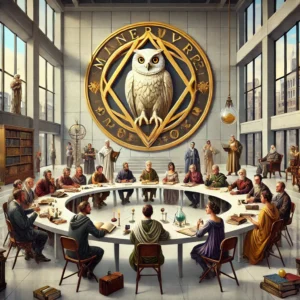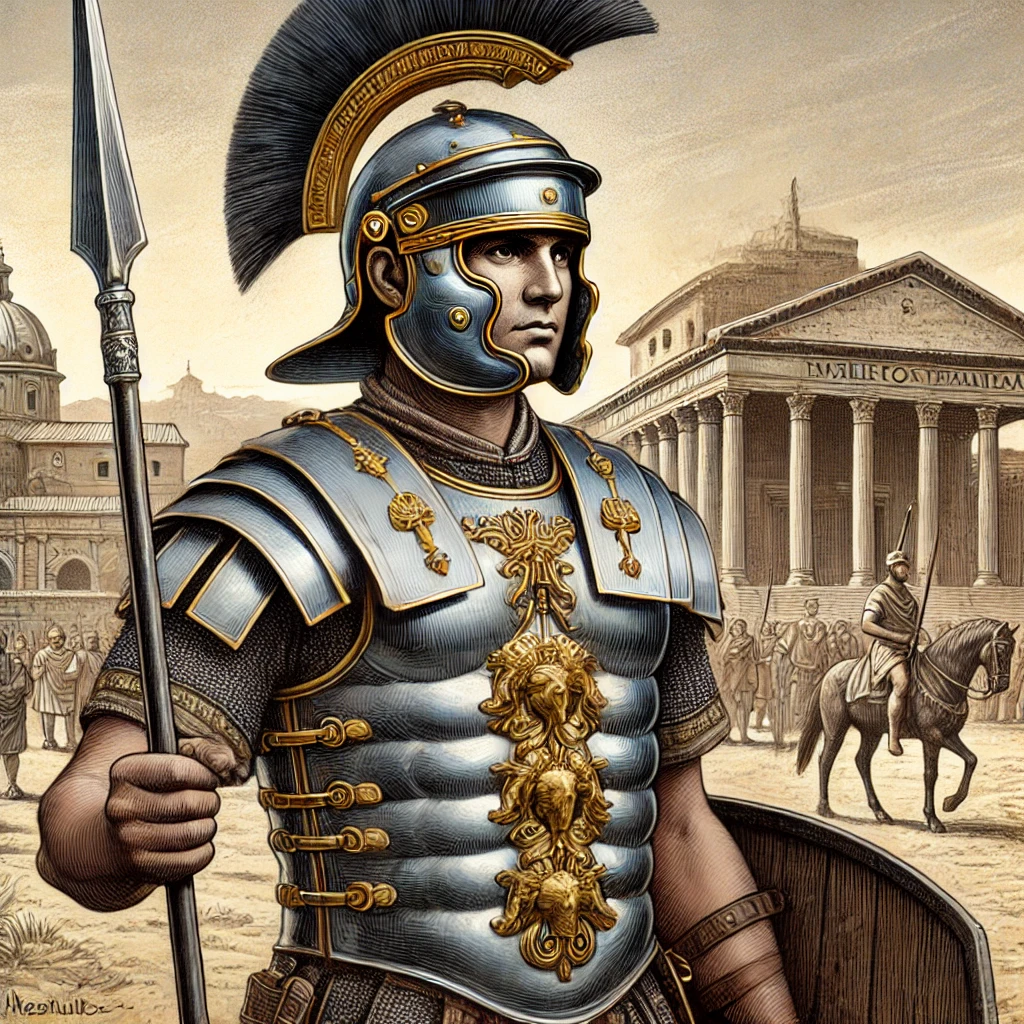
What is the Minerva Order?
The Minerva Order is a decentralized and non-denominational association of individuals distinguished by intelligence, honor, and a quest for knowledge. Named after Minerva, the Roman goddess of wisdom, the Order symbolically represents the promotion of knowledge, insight, and virtuous conduct. Its members consider themselves seekers who are not bound by dogmatic or religious constraints, but rather pursue the search for truth freely and independently.
Central values of the Minerva Order are wisdom, reason, and ethical action. The members aim to embody these virtues in all areas of life, thereby having a positive impact on their surroundings. The Order encourages intellectual exchange, critical thinking, and the continuous development of personal skills and knowledge. It is not only about theoretical learning but also about the practical application of wisdom and ethical behavior in daily life.
The decentralized nature of the Order means that there is no central leadership or strict hierarchy. Instead, members organize themselves independently into various groups or circles that meet regularly for the exchange of ideas and the sharing of knowledge. This decentralized structure allows for great flexibility and promotes personal responsibility among members.
With its non-denominational approach, the Minerva Order appeals to people of various worldviews who are united by their pursuit of knowledge and ethical living. The Order places great emphasis on promoting tolerance, respect, and intellectual freedom. The aim is to contribute to personal and societal development through shared learning and the exchange of ideas, and to make the world a better place through knowledge and virtue.
The name of the Minerva Order refers to Minerva: In the Roman Empire she was considered the protector of crafts and trades. Later, Minerva was equated with the goddess Athena. This protected the poets and teachers. Thus, Minerva became the goddess of wisdom, of art and the guardian of knowledge. Anyone who is in search of bliss and peace will find their vocation with the Minerva Order. Because here the desired virtues can be lived by, here everyone finds peace and can identify with the beautiful things in life.


The Minerva Order is a decentralized and non-religious community whose members seek wisdom and knowledge under Minerva. The special thing about this order, which is called ‘Ordo Minerva’ in Latin, is that anyone can be given the title of knight and can join this order. Women receive the title “Lady”. As a knight of the Minerva Order, you will receive an official order name, which you may bear in public from now on. The name of the order can be used on all desired occasions, for example on your own business cards, on your letterhead, on your house sign and can be used when signing contracts.
But before you decide to become a member of the Minerva Order, a few things should be considered so that there is no misunderstanding in the end.
This includes first of all the fact that the Minerva Order is not a religious community. Those who decide to join the Order cannot expect the same deeds that everyone knows from the Church. The Minerva Order forms a community of individual members who have made it their business to live according to certain rules. The most important rule advocated by the Minerva Order is to raise the level of education, because only those who have a good general education can pass on the moral character that is the highest priority of the Minerva Order and thus lead a perfect life. The fact that the Minerva Order has no negative attitude towards the state, religion and good morals and does not tolerate these among its members should also be mentioned. This requirement is the highest commandment and cannot be circumvented.
What are the titles?
The Order of Minerva is based on the social system of ancient Rome, so we have adapted our titles accordingly.

A Knight lives by the principles of the order and is allowed to use the predicate with his name.

The Senator may maintain contact with members from his or her surroundings and organize meetings.

The Consul is the highest title and he can accept new members at the Minerva Order.
Consuls, senators, and knights represented the political and social backbone of ancient Rome. Consuls and senators dominated political and military leadership, while knights often took on key economic and administrative roles. All three groups were deeply embedded in the hierarchy and power structures of Roman society.
In the Roman Republic and the early Roman Empire, consuls, senators, and knights played crucial roles in governance and society. Their responsibilities and social status varied significantly, though all were part of Rome’s elite.
Consul:
The consul was the highest elected office in the Roman Republic. Each year, two consuls were elected by Roman citizens to share executive power. This position was associated with significant prestige and authority. Consuls led the government, commanded the army, and presided over the Senate. Their responsibilities included conducting wars, administering laws, and leading state rituals.
A consul also had the power to make decisions on political and military matters and could act as the supreme commander of the Roman army in times of emergency. In peacetime, consuls conducted official ceremonies, such as religious festivals and diplomatic negotiations. During their one-year term, their authority was almost unlimited, except for the veto power of the other consul or, in rare cases, the Senate’s intervention.
After their term ended, consuls often remained politically influential by taking on proconsular positions (governorships) in the Roman provinces. Consuls belonged to the Roman nobility, an elite class that combined political power with military leadership.
Senator:
The Senate was the heart of Roman politics, and senators formed the most powerful political and social class in Rome. Senators were not elected but came from aristocratic families or had previously held high offices such as the consulship. The Senate was the main advisory body of the Republic, and later in the Empire, although its formal power diminished, it retained significant influence.
Senators had several responsibilities. They provided recommendations for laws, controlled state finances, supervised foreign policy, and managed the administration of the provinces. Although the Senate had no formal executive power, its decisions could greatly influence legislation and policy.
Senators had to meet certain criteria, such as a minimum wealth threshold and moral integrity. They wore the “toga praetexta” with a broad purple stripe, symbolizing their elite status. Membership in the Senate was often passed down from generation to generation, ensuring the long-term influence of these families in politics.
Knight (Eques):
The Roman knights (Equites) represented the second key elite group in Rome, ranking below the senatorial class but still socially and politically influential. Originally serving as cavalrymen in the Roman army, over time, the knightly class evolved into a wealthy and educated group of businessmen, bankers, and administrators.
Knights played a central role in the Roman economy and were often responsible for managing tax collection and provincial administration. Unlike senators, they were allowed to engage in business activities, thus expanding their wealth. Many knights rose to high-ranking government positions, especially in imperial Rome, where they often served as administrators and military commanders.
Socially, knights ranked between senators and the common people. They wore a narrow purple stripe on their toga as a mark of their rank and a special gold ring. They enjoyed considerable prestige and could improve their status through military or business success.
.
